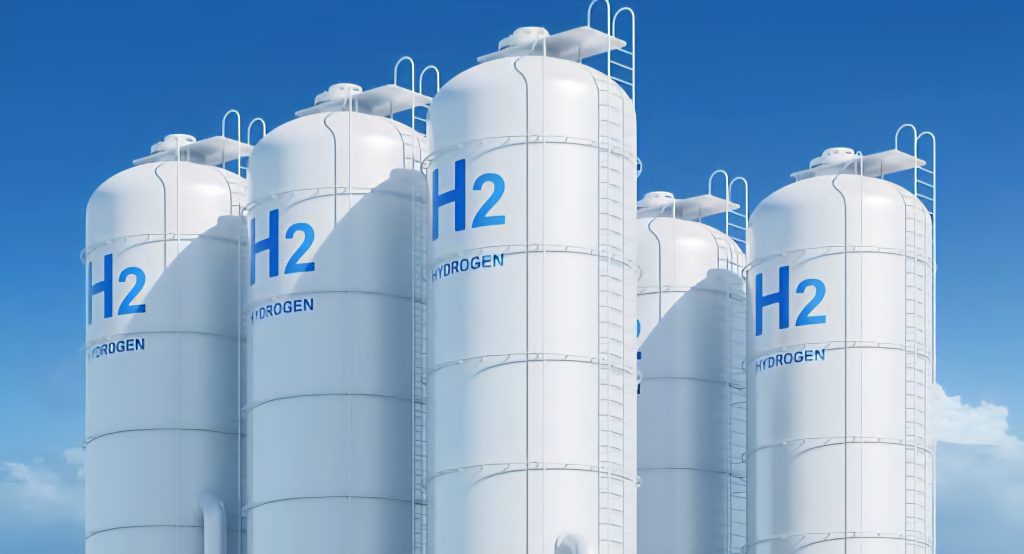As Algeria ramps up its investment in green hydrogen—targeting development, production, and export, and aspiring to become a strategic energy hub for Europe through the SoutH2Corridor project—another form of hydrogen is quietly entering the spotlight: white hydrogen.
Unlike green or blue hydrogen, white hydrogen is naturally occurring and does not require any industrial transformation. According to Professor Nasreddine Kazi, an energy sciences expert, this native hydrogen could represent not only the future of Algeria’s energy sector but also a turning point for the global energy landscape.
A Geological Treasure Beneath Algerian Soil
As outlined by Prof. Kazi, Algeria’s white hydrogen reserves are nothing short of monumental. In fact, scientific estimates suggest the country could be sitting atop the largest known deposit of white hydrogen in the world—by a wide margin.
Speaking at a high-level scientific conference held on May 27, 2025, at the Ibn Khaldoun Hall in Algiers—organized by the Algerian Academy of Sciences and Technologies (AAST) under the theme « Decarbonized Local Energy: White Hydrogen »—Prof. Kazi revealed that Algeria’s subsoil could hold between 4 and 5 billion tonnes of white hydrogen.
To appreciate the scale, consider this: the world’s largest documented white hydrogen deposit, located in France, contains just 46 million tonnes. Algeria’s potential reserves are, by comparison, truly astronomical.
Ougarta and Gara Djebilet in the Lead
Prof. Kazi emphasized that these reserves are not confined to the Sahara. Potential deposits have also been identified in northern Algeria, linked to various geological phenomena such as radiolysis, the oxidation of ferrous iron (Fe²⁺), the reduction of ferric iron (Fe³⁺), and transformations in specific rock formations.
He cited two particularly promising locations: the Ougarta region in Béchar Province and Gara Djebilet in Tindouf Province. These findings could position Algeria as a key player in the emerging global white hydrogen market.
A Strategic “Energy Turning Point”
White hydrogen presents a unique opportunity for Algeria. Unlike industrially produced hydrogen—which often carries a high environmental cost—white hydrogen is naturally generated and can be extracted with minimal ecological impact. It offers a sustainable, cost-effective alternative to both grey and green hydrogen.
Hydrogen produced via methane reforming emits around 20 kg of CO₂ per kilogram of hydrogen, while green hydrogen, though environmentally friendly, remains expensive, with current costs nearing $14 per kilogram. By contrast, white hydrogen extraction could cost as little as $0.50 per kilogram, giving it a significant economic edge.
Industrial Significance and Decarbonization Potential
Hydrogen is already vital to several industries, particularly in the production of ammonia, petroleum refining, and methanol synthesis. With an energy density of 141,000 kJ/kg—2.5 times that of methane—hydrogen stands out as a crucial tool for global decarbonization efforts.
Yet, despite its advantages, hydrogen remains a marginal energy source globally. In 2023, only 91,000 tonnes were exported, and 96% of that came from grey hydrogen, which is highly polluting. White hydrogen could radically shift this paradigm.
Rekindling a 50-Year-Old Vision
Algeria’s growing awareness of white hydrogen’s potential is also a nod to the past. In 1974, Professor M. Abdelouahab Benini submitted a proposal focused on renewable energy sources, including white hydrogen—an initiative that, though ahead of its time, is now gaining renewed relevance.
Today, local startups are entering the field, exploring technologies for detection and exploitation. These initiatives mark the early steps toward building a white hydrogen sector grounded in innovation and sustainability.
Toward a Hydrogen-Driven Future
The recent scientific forum served as a launchpad for a broad and constructive dialogue between researchers, public institutions, the security sector, and media representatives. A clear consensus emerged: white hydrogen represents a strategic lever for Algeria’s energy transition.
Turning this vision into reality will require robust investment in research, technological innovation, and the development of a structured national white hydrogen industry. The time for exploratory talk is over—concrete action is now required.
No longer a speculative concept, white hydrogen is emerging as a tangible, viable, and competitive energy resource. By embracing this opportunity, Algeria not only stands to diversify its economy but also to become a global leader in the transition toward cleaner, more sustainable energy.

